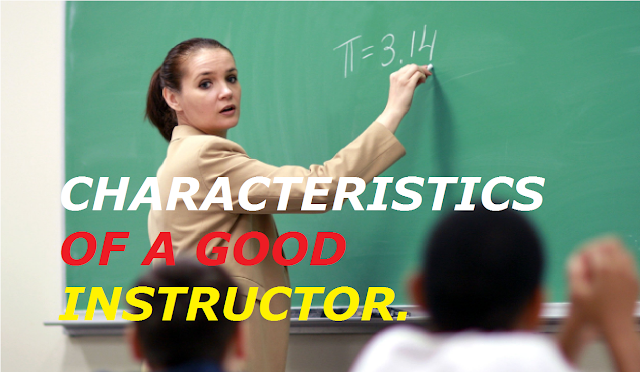PRINCIPLES
OF LEARNING.
There are certain basic psychological facts and principles pertaining to learning which every teacher should understand and able to apply in his teaching.
The followings are some of the principles of learning:-
1) Learning results from stimulation through the human senses:-
Learning is a change in behavior. Learning is explained as the things we do as a response to stimuli.
2) Learning requires activity: -
The common expression “We learn to do by doing” states a principle which must be put into practice by every instructor.
Also Read Major Difference Between PRINCIPLES OF TEACHING and PROCESS OF LEARNING
3) Learning is based on past experience: - Learning starts with what the learner knows but not with what the teacher knows or starts. This expression is true in all learning situations. What we know obtain forms the basis for what we intend to know.
4) Interest is essential to effective learning and makes learners ready to learn: - Interest is an inner feeling which causes people to direct their attention to do certain things. Interest claims attention, attention with interest results in concentration, concentration with purpose, provides feelings and experience which culminate (to rise to the highest point) in real learning.
5) Early successes increase chances for effective learning: - The instructor helps the learners to develop an interest in the work that dear to them. He should also see as far as possible the work that they do results in success. When there is a satisfaction further learning is possible.
6) Knowledge of purpose, Use, and Application of things to be taught that makes learning more effective: - The learner has a right to know, why he is required to learn in a certain way and spend a lot of his time, effort and money. If somebody convinces him of the purpose of learning, he is interested to learn and learns it thoroughly. Then his learning will be quick and meaningful.
7) Continuous Evaluation is Essential to Effective Learning: - Self-evaluation of one’s efforts is essential to progress. The trainee must continually compare his work with some standard of accomplishment (attainment) if he is to improve. It is the duty of the instructor to help the trainee to achieve a high standard of quality of work.
8) Recognition and Credit provide a strong incentive for learning: - Trainees desire and have a right to expect credit for work well done. Credit is given to those that deserve (to merit) credit. In this way, trainees are stimulated for better activity.
There are certain basic psychological facts and principles pertaining to learning which every teacher should understand and able to apply in his teaching.
The followings are some of the principles of learning:-
 |
| PRINCIPLES OF LEARNING. |
1) Learning results from stimulation through the human senses:-
Learning is a change in behavior. Learning is explained as the things we do as a response to stimuli.
2) Learning requires activity: -
The common expression “We learn to do by doing” states a principle which must be put into practice by every instructor.
Also Read Major Difference Between PRINCIPLES OF TEACHING and PROCESS OF LEARNING
3) Learning is based on past experience: - Learning starts with what the learner knows but not with what the teacher knows or starts. This expression is true in all learning situations. What we know obtain forms the basis for what we intend to know.
4) Interest is essential to effective learning and makes learners ready to learn: - Interest is an inner feeling which causes people to direct their attention to do certain things. Interest claims attention, attention with interest results in concentration, concentration with purpose, provides feelings and experience which culminate (to rise to the highest point) in real learning.
5) Early successes increase chances for effective learning: - The instructor helps the learners to develop an interest in the work that dear to them. He should also see as far as possible the work that they do results in success. When there is a satisfaction further learning is possible.
6) Knowledge of purpose, Use, and Application of things to be taught that makes learning more effective: - The learner has a right to know, why he is required to learn in a certain way and spend a lot of his time, effort and money. If somebody convinces him of the purpose of learning, he is interested to learn and learns it thoroughly. Then his learning will be quick and meaningful.
7) Continuous Evaluation is Essential to Effective Learning: - Self-evaluation of one’s efforts is essential to progress. The trainee must continually compare his work with some standard of accomplishment (attainment) if he is to improve. It is the duty of the instructor to help the trainee to achieve a high standard of quality of work.
8) Recognition and Credit provide a strong incentive for learning: - Trainees desire and have a right to expect credit for work well done. Credit is given to those that deserve (to merit) credit. In this way, trainees are stimulated for better activity.
Also Read CHARACTERISTICS OF A GOOD INSTRUCTOR.






